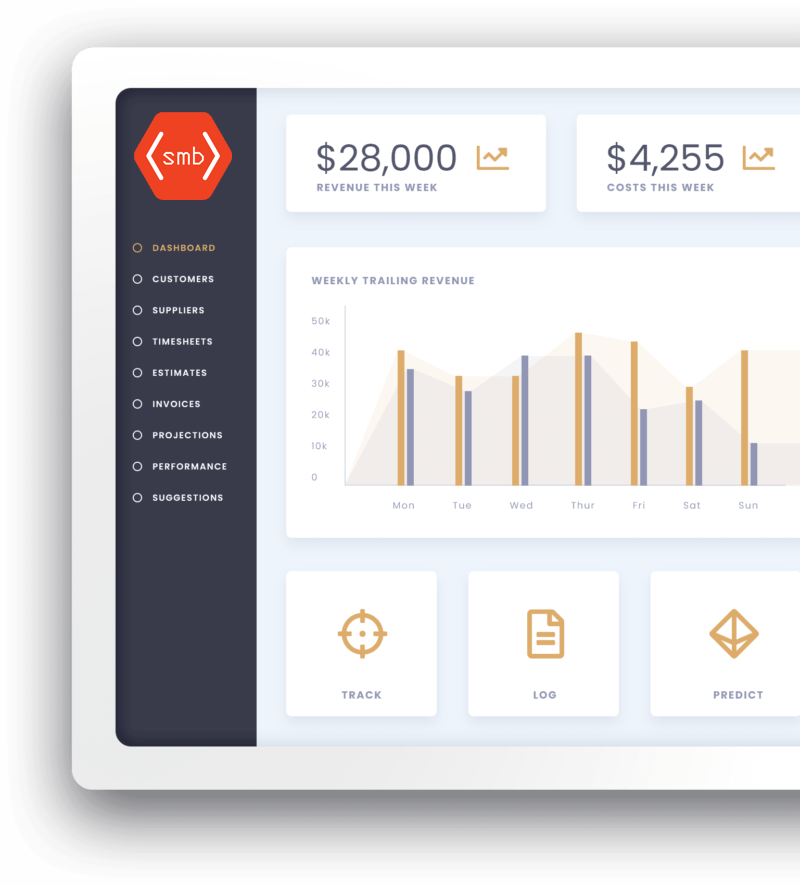
In today’s fast-paced digital revolution, businesses worldwide are grappling with an intricate challenge: Balancing technology and human connection by integrating cutting-edge technological solutions. This balance is crucial for small and medium-sized Businesses (SMBs) in particular to maintaining trust and building lasting relationships with their customers. As automated processes and artificial intelligence rise to prominence, there’s an undeniable allure to the efficiency they offer. Yet, as businesses lean further into automation, the risk of compromising genuine, human-to-human interaction looms large. Herein lies the true genius of modern Customer Relationship Management (CRM) systems. Designed not merely as tools, but as philosophies, today’s CRMs are deftly bridging this divide, marrying the precision of technology with the empathy of human interaction. This article seeks to illuminate how modern CRM solutions are guiding SMBs on a journey where technology empowers humanity rather than eclipsing it.
Customer Relationship Management (CRM) has witnessed a transformative shift over the past decade. Gone are the days when CRM systems served merely as repositories for contact details and sales data. Today, the heartbeat of modern CRM is far more dynamic and multidimensional.
At its core, contemporary CRM systems thrive on a delicate equilibrium. On one side of the scale, we have powerful technological capabilities—advanced analytics, machine learning algorithms, and automation—that promise unparalleled efficiency and foresight. These tools empower businesses to process vast quantities of data at lightning speeds, draw actionable insights, and even predict future customer behaviors.
However, on the other side of this balance lies the age-old essence of commerce: human connection. The best CRM strategies recognize that while data can provide invaluable insights, the nuances of human emotions, motivations, and desires remain irreplaceably central to business success. This recognition has led to CRM strategies and solutions prioritizing personalization, ensuring that every automated email, chatbot response, or marketing campaign resonates with personal relevance.
Thus, the pulse of modern CRM is not a binary rhythm but a harmonious fusion. It beats to the drum of technological advancement while echoing the timeless cadences of human relationships. This dual focus ensures that SMBs gain customers and cultivate meaningful relationships that stand the test of time and technological evolution.
Introducing technology platforms in business was historically approached from a functional perspective. Tools were developed, platforms were integrated, and systems were optimized—all with the primary objective of streamlining operations. But as the digital age matures, there’s a profound realization that the most impactful technological solutions transcend mere functionality; they embody philosophies.
Contemporary CRM is a quintessential example of this evolution. While its foundational purpose remains to manage and analyze customer interactions throughout the lifecycle, its role in modern business strategy has expanded exponentially. Today’s CRM isn’t just a system or a tool; it represents a mindset—a belief in the confluence of technology and humanity.
At the heart of this philosophy lies a simple, yet profound tenet: businesses don’t operate in a vacuum. They exist within intricate networks of human interactions, relationships, and emotions. A modern CRM acknowledges this complexity and seeks to enrich it, rather than simplify it down to mere data points. Integrating advanced analytics with empathetic touchpoints makes CRM a compass, guiding businesses toward more meaningful and lasting customer engagements.
This philosophical approach also emphasizes adaptability and learning. In a world of constant change, a CRM system’s ability to evolve, learn from new data, and recalibrate strategies is paramount. But equally important is its capacity to ensure that, amidst this evolution, the essence of human connection remains undiluted.
In essence, adopting a CRM today means embracing a philosophy of balance. It’s about recognizing that while we journey through an age of extraordinary technological prowess, the age-old principles of trust, understanding, and genuine connection remain as vital as ever.
Amidst the discourse on the philosophical underpinnings of modern CRM, it’s essential to pivot to the pragmatic: What tangible outcomes can SMBs expect when they integrate these advanced systems into their operations?
1. Enhanced Customer Engagement: At the intersection of technology and humanity, CRM systems facilitate targeted marketing campaigns, personalized content delivery, and proactive customer service responses. The result? Higher engagement rates, as customers feel seen, understood, and valued.
2. Data-Driven Decision Making: With the capacity to analyze vast datasets, CRM tools offer SMBs insights that were previously out of reach. Based on real customer feedback and behavior, these insights provide a foundation for strategic decision-making, from product development to market expansion.
3. Operational Efficiency: Beyond customer interactions, the integrated tools within CRM systems streamline internal processes. Automated task reminders, synchronized communication channels, and centralized data storage contribute to reduced operational overhead and improved team collaboration.
4. Increased Sales and Revenue: By optimizing the sales funnel, modern CRM aids in lead conversion. Predictive analytics can highlight potential sales opportunities, while personalized outreach strategies can nurture leads more effectively, ultimately boosting sales figures.
5. Loyal Customer Base: Perhaps the most profound outcome of a well-implemented CRM is customer loyalty. When businesses consistently anticipate and meet customer needs, address concerns proactively, and make interactions effortless and personalized, they cultivate a base of customers who not only return but also become brand ambassadors.
6. Continuous Learning and Improvement: Modern CRM systems are inherently iterative. They learn from every interaction, refining algorithms and suggesting areas for improvement. This continuous learning cycle ensures that SMBs can adapt and evolve in real-time, always staying one step ahead of customer expectations.
The tangible outcomes of integrating a modern CRM are multifaceted. They resonate through every tier of business operations, from high-level strategy formulation to day-to-day task management. But, at the core of each benefit lies a singular truth: when technology and humanity harmonize, the business landscape doesn’t just change; it transforms.
In the labyrinth of today’s business environment, customer interactions stand as critical touchpoints that can shape a company’s reputation, influence purchasing decisions, and determine long-term loyalty. Modern CRM systems act as a guiding compass, ensuring businesses navigate these interactions and elevate them to unparalleled heights.
1. Unified Customer View: One of the premier offerings of contemporary CRM is the consolidated customer view. CRM platforms paint a holistic portrait of each customer by drawing data from various touchpoints, from emails and social media to in-store interactions. This comprehensive view enables businesses to tailor interactions based on individual preferences and history.
2. Predictive Analysis: Armed with machine learning algorithms, CRM systems can forecast future customer behaviors. This foresight allows businesses to proactively address potential issues, personalize offers, or nurture leads at the most opportune moments.
3. Automated Personalization: In the age of personalization, generic interactions no longer suffice. CRM systems automate personalized communication based on user behavior and preferences. Whether it’s a custom email campaign or a curated product recommendation, these small touches significantly amplify the user experience.
4. Omnichannel Consistency: Customers interact with businesses across multiple channels, from websites and chatbots to phone calls and physical stores. Modern CRM ensures consistent and seamless communication across these channels, ensuring the customer experience is unified and coherent.
5. Feedback Loops: A vital aspect of enhancing interactions is understanding areas of improvement. CRM platforms facilitate this through integrated feedback mechanisms. Surveys, feedback forms, and review prompts can be automated, ensuring businesses continually receive constructive feedback and act upon it.
6. Empathy-Driven Interaction Design: Beyond the data and automation lies the human touch. Advanced CRM systems offer tools and training resources that guide teams on integrating empathy into their interactions. Understanding customer sentiments, recognizing their challenges, and demonstrating genuine care can transform routine interactions into memorable experiences.
In navigating the maze of customer touchpoints, CRM doesn’t merely provide a map; it offers a vision—a vision of elevated, impactful interactions that resonate on a human level while being powered by cutting-edge technology. The journey with CRM is one of continuous refinement, ensuring every touchpoint becomes an opportunity to strengthen bonds and showcase unparalleled value.
While the allure of modern CRM systems is undeniable, their implementation and ongoing use are not devoid of challenges. For SMBs, these hurdles can sometimes seem daunting. However, with an understanding of these challenges and armed with the right CRM solutions, businesses can transform potential pitfalls into avenues for growth and innovation.
1. Data Overload: The influx of data from myriad sources can be overwhelming. CRM solutions today come equipped with advanced data management and filtering tools, ensuring businesses access actionable insights without getting swamped by raw data.
2. Integration Hiccups: Integrating a CRM system with existing platforms and tools can pose technical challenges. Modern CRM solutions prioritize seamless integration, offering plug-and-play functionalities and support for diverse software ecosystems.
3. User Adoption: Resistance to change is a common human trait. To combat this, today’s CRM platforms focus on user-friendly interfaces, interactive tutorials, and continuous training modules, ensuring teams embrace the new system willingly and effectively.
4. Maintaining Personal Touch: The risk of over-automation can lead to impersonal customer interactions. CRM systems address this by allowing customizable automation levels, ensuring businesses retain the human touch where it matters most.
5. Security Concerns: With increasing data breaches globally, data security is paramount. Top-tier CRM solutions come fortified with advanced encryption, multi-factor authentication, and regular security audits to keep customer data safe and instill trust.
6. Cost Implications: For SMBs, budget constraints are a genuine concern. Recognizing this, CRM providers have diversified their offerings, providing scalable solutions that can grow with a business, and ensuring cost-effectiveness without compromising on essential features.
7. Staying Updated: The rapid evolution of technology means systems can quickly become outdated. Leading CRM platforms counter this by rolling out regular updates, new feature integrations, and ensuring backward compatibility, helping businesses stay on the cutting edge.
Navigating the challenges posed by CRM implementation and usage requires a blend of strategic foresight, the right tools, and a commitment to continuous learning. By addressing these challenges head-on and leveraging the vast capabilities of modern CRM solutions, SMBs can overcome potential roadblocks and harness these challenges as catalysts for growth and enhanced customer engagement.
In today’s intricate business tapestry, where technology threads intertwine with human motifs, the role of a robust CRM system has never been more pivotal. As we’ve journeyed through the landscapes of modern CRM, a clear narrative emerges: technology, in all its splendor, serves as an enabler, a tool that, when wielded correctly, can amplify the very essence of human connection.
For small and medium-sized businesses, the stakes are particularly high. In a world teeming with choices, the discerning customer seeks more than just a product or service—they yearn for experiences, relationships, and brands that see and understand them. In its modern incarnation, CRM is a beacon for these businesses, illuminating the path to genuine, lasting relationships forged in the crucible of technology and empathy.
But, as with all tools, the power of CRM lies not just in its advanced features or analytical prowess, but in its application. Businesses must approach CRM not just as a platform but as a philosophy, always remembering that at the heart of every data point, every algorithm, every automated response, there lies a human being—with emotions, desires, and stories.
As we stand on the cusp of further technological advancements, the timeless truth remains: technology, when harmonized with humanity, holds the promise not just of better business but of a world where interactions, irrespective of the medium, resonate with understanding and authenticity. In this harmonious confluence, SMBs will find their true north, guiding them to success in an era defined by both digital brilliance and the undying spirit of human connection.
As we wrap up our journey through the intertwined realms of technology and humanity in CRM, the path forward is clear: To truly harness the power and potential of CRM, proactive action is paramount.
– Embrace the CRM Journey: Dive deep into the essence of CRM, ensuring it’s not just a tool, but a cornerstone of your business strategy. Commit to learning, evolving, and aligning your CRM approach with the ever-changing needs of your customers.
– Engage and Educate: Attend forums, workshops, and seminars dedicated to CRM innovations and best practices. Share and absorb experiences, challenges, and success stories, weaving a tapestry of knowledge and foresight.
– Empower Your Team: Infuse your team with both the technical prowess and the ethos of CRM. Comprehensive training programs are pivotal, emphasizing the balance of tech know-how with customer-centric values.
– Experiment Boldly: The CRM landscape is vast and rich in potential. Venture into new strategies, explore novel tools, and remain open to iterative refinements.
And most crucially:
– Partner with Experts: To truly elevate your CRM strategy and lay a robust foundation, consider reaching out to the seasoned professionals. SMB Dynamics, renowned CRM strategists and experts, stand ready to guide your business to CRM success. Their unique blend of expertise, insights, and personalized approach ensures that your CRM journey isn’t just effective, but transformative. By collaborating with SMB Dynamics, you’re investing not only in a service but also in a partnership that promises growth, innovation, and a deep understanding of the delicate balance between technology and humanity.
The future of your business interactions awaits. A world where every touchpoint, every decision, every strategy is underpinned by a harmonious blend of technology and genuine human connection. Embark on this journey, and let SMB Dynamics be your guiding star, illuminating the path to CRM excellence. Reach out today, and let’s co-create a future defined by meaningful relationships and unparalleled business success.




